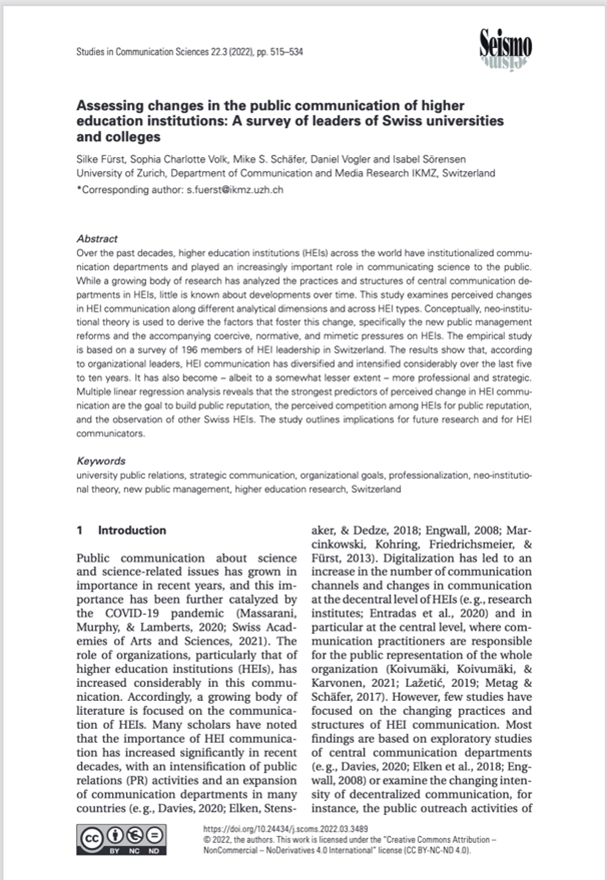Assessing changes in the public communication of higher education institutions: A survey of leaders of Swiss universities and colleges. (2022)
Abstract
Over the past decades, higher education institutions (HEIs) across the world have institutionalized communication departments and played an increasingly important role in communicating science to the public. While a growing body of research has analyzed the practices and structures of central communication departments in HEIs, little is known about developments over time. This study examines perceived changes in HEI communication along different analytical dimensions and across HEI types. Conceptually, neo-institutional theory is used to derive the factors that foster this change, specifically the new public management reforms and the accompanying coercive, normative, and mimetic pressures on HEIs. The empirical study is based on a survey of 196 members of HEI leadership in Switzerland. The results show that, according to organizational leaders, HEI communication has diversified and intensified considerably over the last five to ten years. It has also become – albeit to a somewhat lesser extent – more professional and strategic. Multiple linear regression analysis reveals that the strongest predictors of perceived change in HEI communication are the goal to build public reputation, the perceived competition among HEIs for public reputation, and the observation of other Swiss HEIs. The study outlines implications for future research and for HEI communicators.
Citation
Fürst, S., Volk, S. C., Schäfer, M. S., Vogler, D., & Sörensen, I. (2022). Assessing changes in the public communication of higher institutions: A survey of leaders of Swiss universities and colleges. Studies in Communication Sciences, 22(3), 515-534. https://doi.org/10.24434/j.scoms.2022.03.3489
